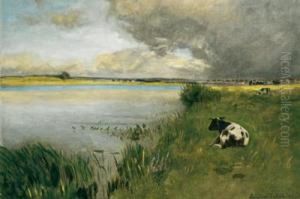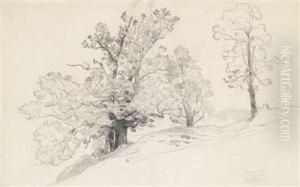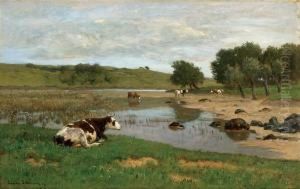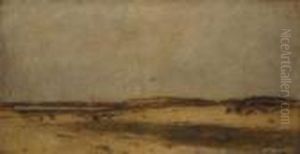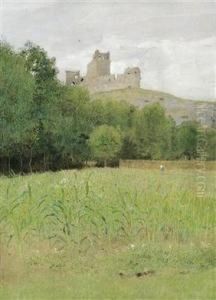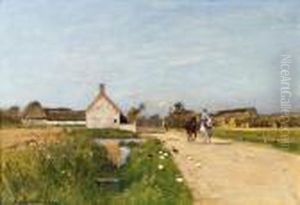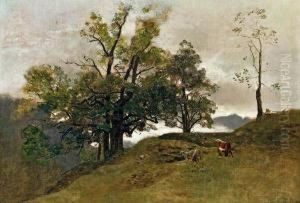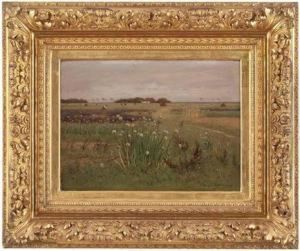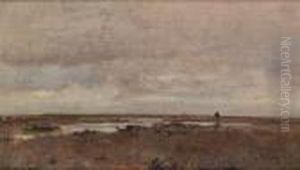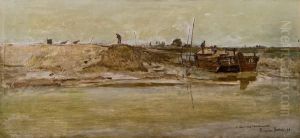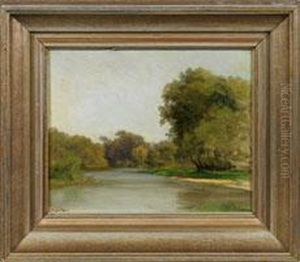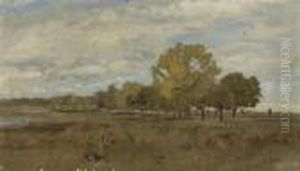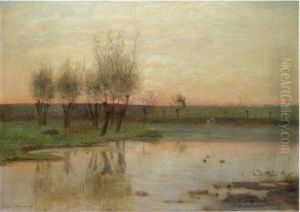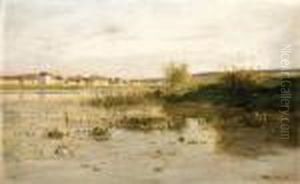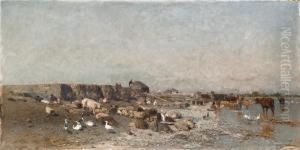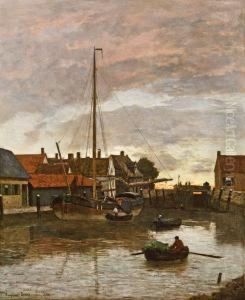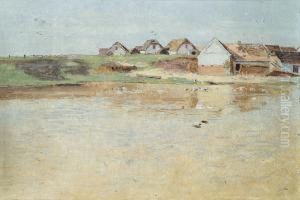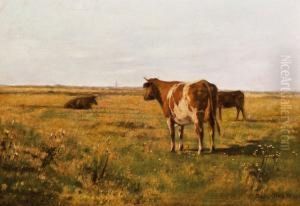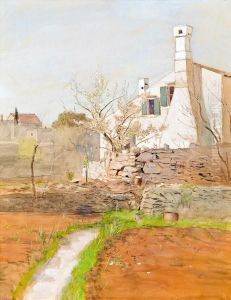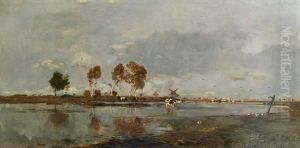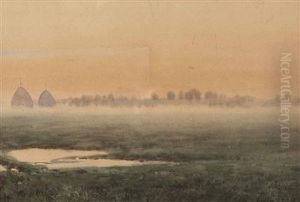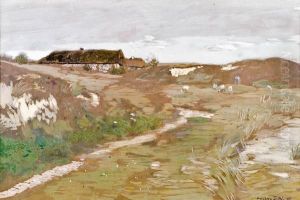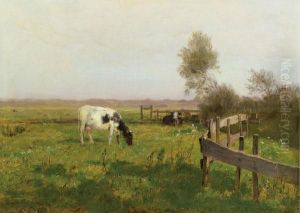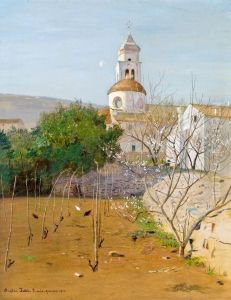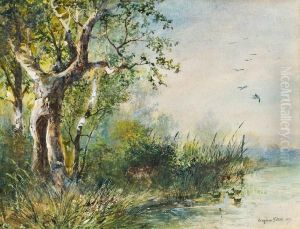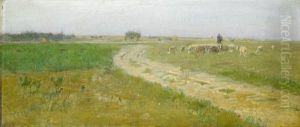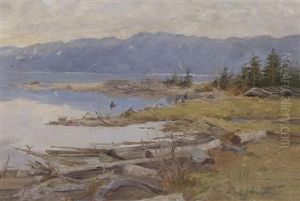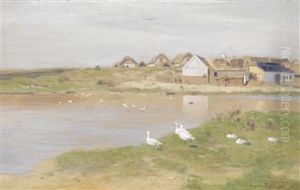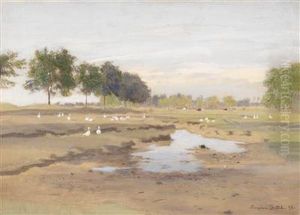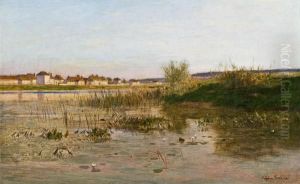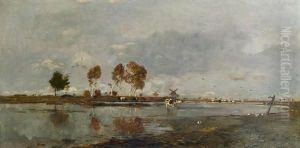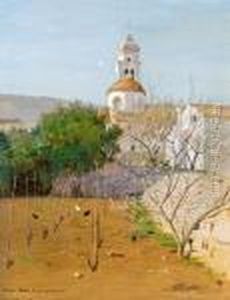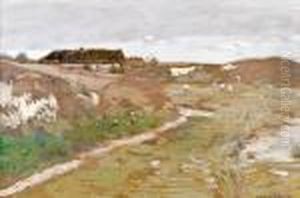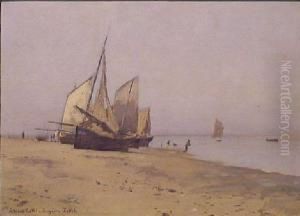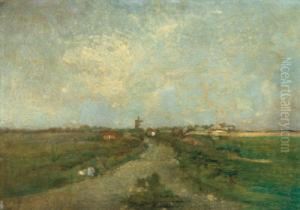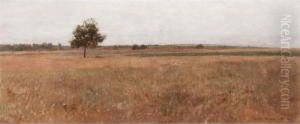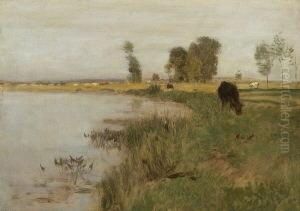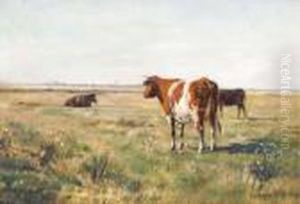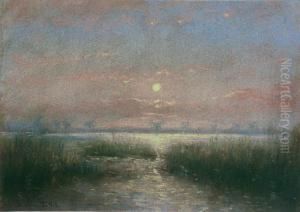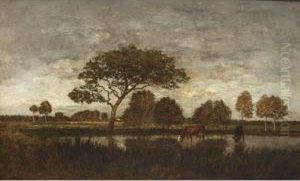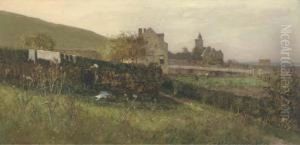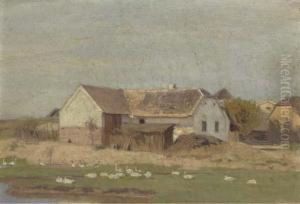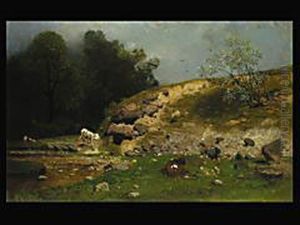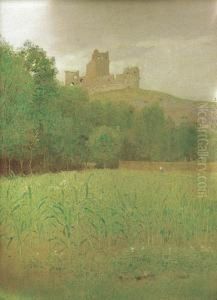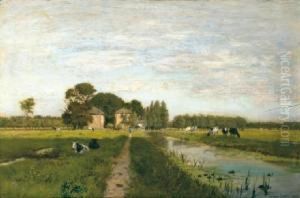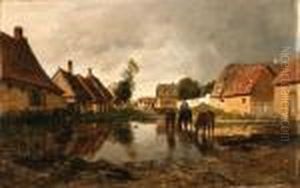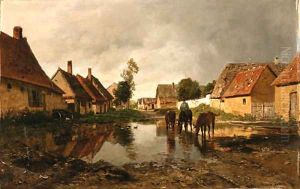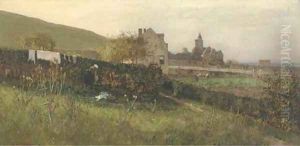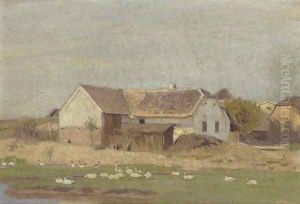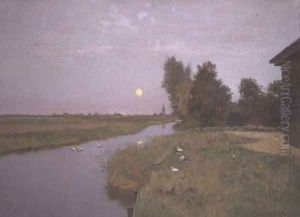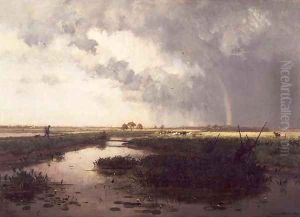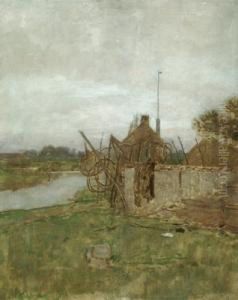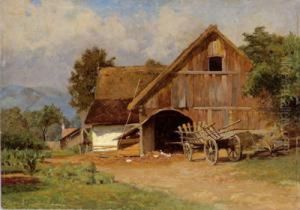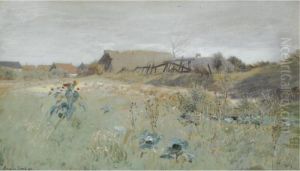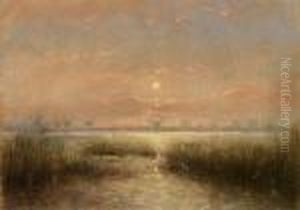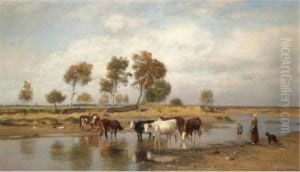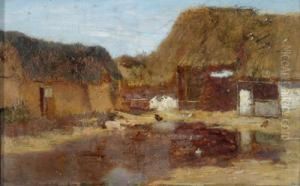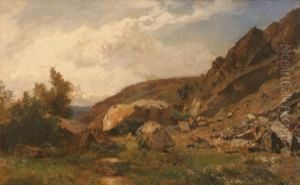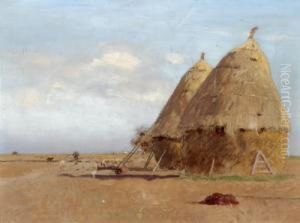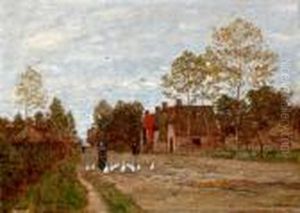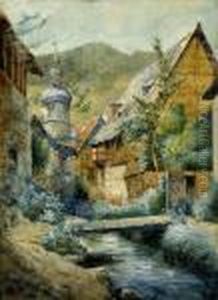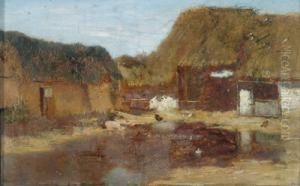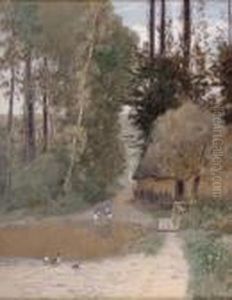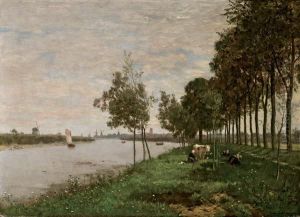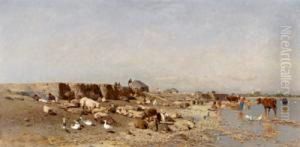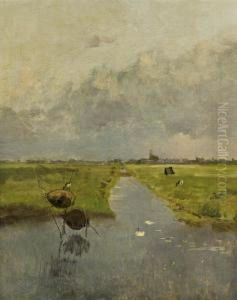Eugene Jettel Paintings
Eugène Jettel was an Austrian landscape painter born on June 16, 1845, in Leopoldstadt, Vienna. He received his initial training at the Academy of Fine Arts Vienna under the guidance of Albert Zimmermann, a prominent landscape painter of that period. Jettel's early works were influenced by Zimmermann's style, which often depicted atmospheric landscapes with a romantic sensibility.
After his studies, Jettel traveled extensively throughout Europe, which greatly influenced his artistic development. He spent significant time in France, where he was exposed to the Barbizon school of painting, a movement that emphasized painting en plein air (outdoors) and focused on the realistic representation of rural scenes. This exposure led to a transformation in Jettel's artistic approach, as he began to incorporate elements of the Barbizon style into his work, moving away from the more idealized landscapes of his teacher.
Jettel's mature style is characterized by a nuanced understanding of light and atmosphere, with a particular emphasis on the tranquil moods of nature. He often painted river scenes, marshlands, and rural landscapes with a fine sense of detail and a subdued color palette, capturing the serene and harmonious aspects of the natural world.
In 1873, Jettel moved to Paris, which was then the epicenter of the art world. His work was well-received, and he participated in the Paris Salon, an annual art exhibition that was the most prestigious in the Western world. Jettel's paintings were praised for their technical skill and poetic interpretation of landscape, and he became a respected member of the Parisian art community.
Throughout his career, Jettel also spent time in Hungary, where he painted the vast plains and pastoral scenes that were characteristic of the region. His work from this period reflects a fascination with the unique light and geography of the Hungarian landscape.
Eugène Jettel continued to paint and exhibit his work until his death on May 25, 1901, in Paris. Although not as widely known today as some of his contemporaries, Jettel's contribution to landscape painting remains significant. His paintings can be found in various museums and private collections, appreciated for their quiet beauty and mastery of the landscape genre.
